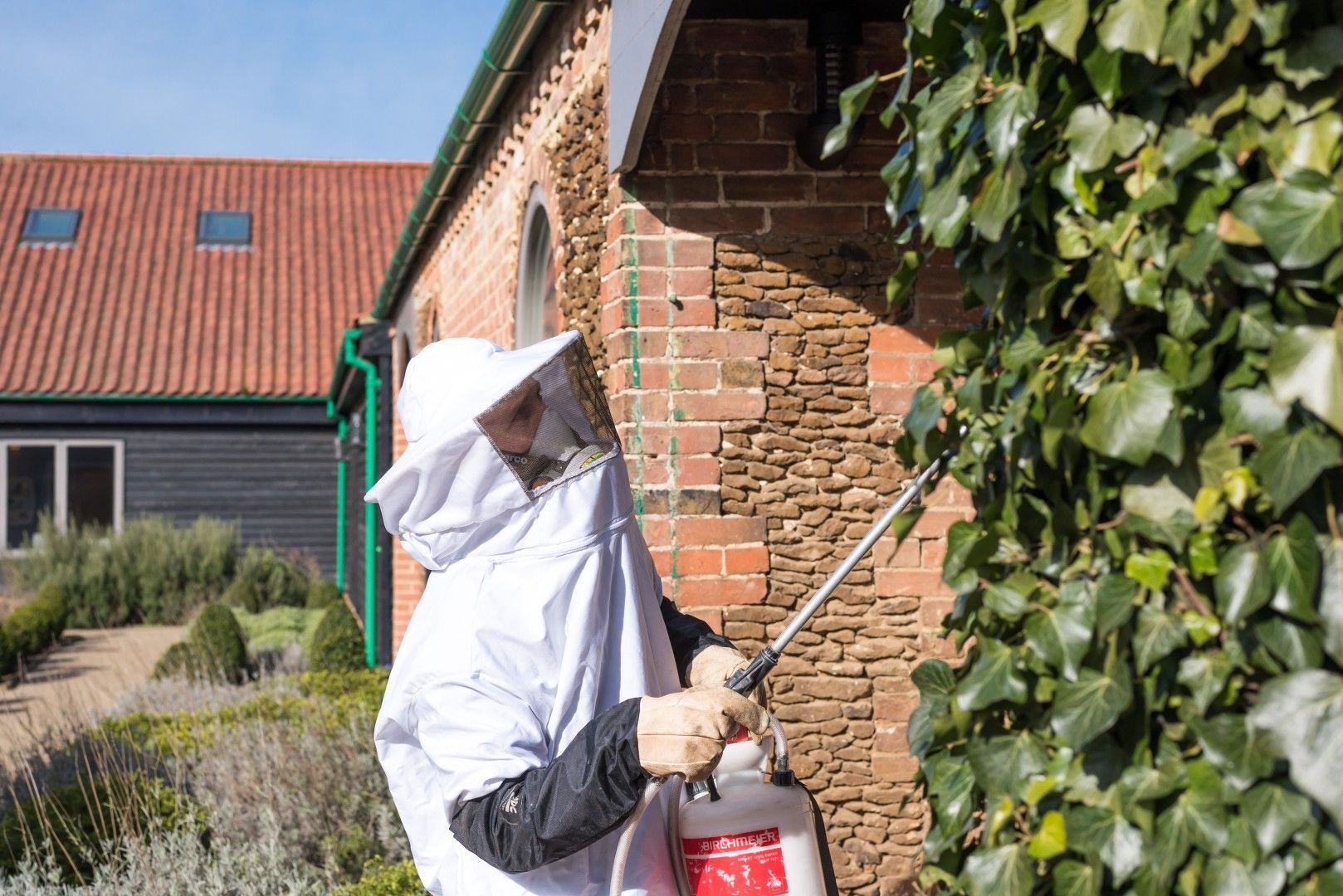Professional Bee & Wasp Removal in Arlington, VA
Safe, professional removal of bee hives and wasp nests by Ward Pest Control's trained specialists. We protect beneficial pollinators when possible while eliminating dangerous stinging insect threats from your Arlington property.
Stinging insects can pose serious health risks, especially for those with allergies. Our certified technicians have the proper equipment and expertise to safely remove nests and hives while minimizing risk to you and your family.

Our Safe Bee & Wasp Removal Process
We prioritize safety and environmental responsibility in all our stinging insect removal services.
Species Identification
Proper identification of bee and wasp species to determine the most appropriate and safe removal method.
Safety Assessment
Evaluation of nest location, accessibility, and potential risks to determine the safest removal approach.
Professional Removal
Safe removal using proper protective equipment and techniques, with bee relocation when possible.
Prevention Advice
Recommendations to prevent future nesting and reduce attractants around your Arlington property.
Common Stinging Insects in Arlington, VA
Honey Bees
Beneficial pollinators that we relocate when possible. Honey bees are generally docile but will defend their hive when threatened.
- • Important pollinators - relocation preferred
- • Build large, permanent colonies
- • Can only sting once
- • Less aggressive than wasps
Yellow Jackets
Aggressive wasps that build nests in wall voids, ground, and other protected areas. Can sting multiple times and become very defensive.
- • Highly aggressive when disturbed
- • Can sting multiple times
- • Often nest in wall voids or ground
- • Attracted to food and sugary drinks
Paper Wasps
Build open, umbrella-shaped nests under eaves, decks, and other protected areas. Less aggressive than yellow jackets but will defend their nest.
- • Build open, paper-like nests
- • Less aggressive than yellow jackets
- • Beneficial predators of other insects
- • Common under eaves and overhangs
Bald-Faced Hornets
Large wasps that build large, enclosed nests in trees and shrubs. Very aggressive when defending their nest and can spray venom.
- • Build large, enclosed nests
- • Very aggressive defenders
- • Can spray venom at threats
- • Usually nest in trees or large shrubs
Frequently Asked Questions About Bee & Wasp Removal
Do you relocate honey bees instea of killing them?
Yes, whenever possible we work with local beekeepers to relocate honey bee colonies rather than eliminate them. Honey bees are crucial pollinators and we prioritize their conservation. However, relocation isn't always possible depending on the location and condition of the hive.
How dangerous are wasp and bee stings?
For most people, bee and wasp stings cause temporary pain and swelling. However, those with allergies can experience severe reactions requiring immediate medical attention. Multiple stings can also be dangerous even for non-allergic individuals. Professional removal eliminates these risks.
When is the best time to remove wasp nests in Arlington?
Early spring is ideal for wasp nest removal when colonies are small and less aggressive. However, we can safely remove nests any time of year. Summer removals require extra caution as colonies are at peak size and aggression. We recommend immediate removal once a nest is discovered.
How much does bee and wasp removal cost in Arlington?
Costs vary based on nest location, size, and species. Most residential removals range from $150-$400. Difficult-to-access locations or large nests may cost more. We provide free estimates and will explain all costs before beginning work. Emergency same-day service may include additional fees.
Can I remove a wasp nest myself?
We strongly advise against DIY wasp nest removal due to safety risks. Wasps can become extremely aggressive when their nest is threatened, and multiple stings can be dangerous. Professional removal ensures safety and complete elimination. Over-the-counter sprays often anger wasps without eliminating the colony.
How can I prevent bees and wasps from nesting on my Arlington property?
Remove potential nesting sites like old furniture, debris piles, and unused structures. Seal cracks and holes in walls, eaves, and foundations. Keep garbage cans tightly sealed and clean up food and drink spills promptly. We provide detailed prevention recommendations after nest removal.